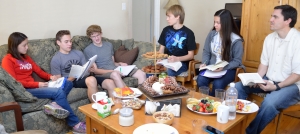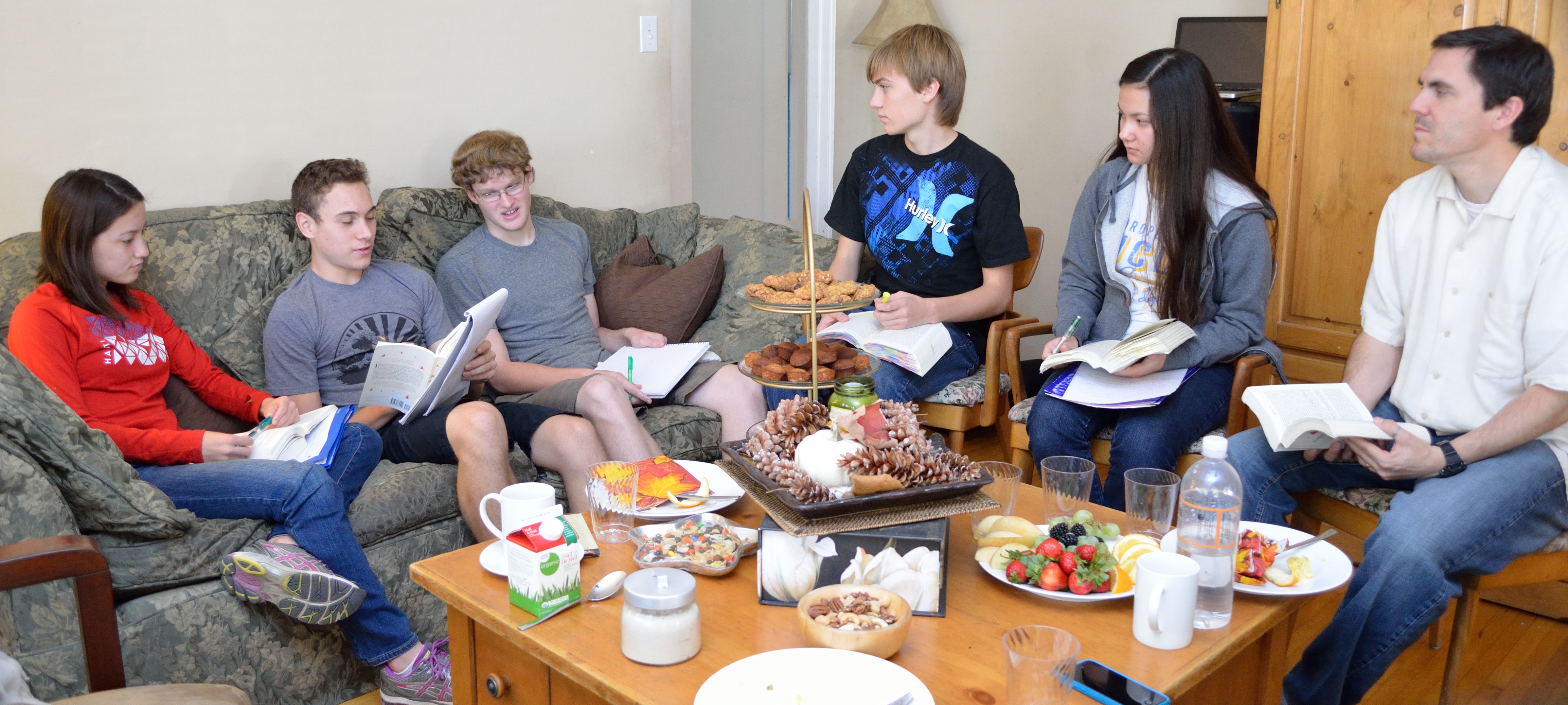By Claire Newfeld
 Every Tempe Prep student will have to write a senior thesis when they get to 12th grade. At the end of the third quarter of every year, the teachers pair up and begin thinking of two to three books they may want to use for their thesis groups. The juniors are then presented with the list of books for each group and pick their top three group choices. The teachers for each group are not revealed, because the students should make their choices based on books they are interested in reading, not which teachers they would or would not like to work with. A maximum of six students are put in one thesis group. Generally, students get their first or second choices.
Every Tempe Prep student will have to write a senior thesis when they get to 12th grade. At the end of the third quarter of every year, the teachers pair up and begin thinking of two to three books they may want to use for their thesis groups. The juniors are then presented with the list of books for each group and pick their top three group choices. The teachers for each group are not revealed, because the students should make their choices based on books they are interested in reading, not which teachers they would or would not like to work with. A maximum of six students are put in one thesis group. Generally, students get their first or second choices.
The students then spend the summer and much of the first semester reading their books. They must also choose one book from the high school curriculum as a companion to their other ones. They have the option to choose a book from outside of the curriculum, which is approved on a case-by-case basis. As they complete each book, the faculty advisors hold group meetings to discuss the themes and ideas driving the stories. Usually these meetings involve some sort of meal, a silver lining in an intense process.
After all the books are finished, the students write one- to two-page outlines to plan their 15- to 20-page papers, and both the Humane Letters teacher and faculty advisors review it. The rough draft is due at the beginning of second semester, and the final is due at the end of the third quarter.
To round out the process is the thesis defense, which takes place in front of an audience and a panel of faculty consisting of the Humane Letters teacher and the advisors. The panel will ask the student questions about the paper before turning the discussion over to the audience.
The seniors this year are currently finishing up their books and preparing to write their outlines. Some of the books being read this year are Demons (Dostoevsky), Candide (Voltaire), Fear and Trembling (Kierkegaard), Frankenstein (Shelley), and Anna Karenina (Tolstoy), among others.
It seems that the general consensus among seniors is that the process has actually been relatively enjoyable. This may come as a surprise, since not many people view reading long books and writing 20-page papers on them as enjoyable. Senior Eric Rhoades says of his experience: “For every person and book the experience varies, but my personal experience has been, in my opinion, a rather positive experience. I got to read Dostoevsky as an author with Demons, and I feel like he makes his literature with the intent of having the reader analyze what the characters’ intentions are throughout the book through their thoughts and perspectives.” Senior Sarah Faulkner says, “The process is different than I expected, and I found more enjoyment in my books than I thought I would.”
The seniors’ favorite part of the process so far? The discussions. Eric Rhoades says, “We all get to sit down and offer our own insight and interpretations to add each other’s collective thoughts and experiences with our own to improve as such.” Sarah Faulkner says, “I like the discussions and the food at the meetings, and they help solidify what I’ve learned from my books.”
As they continue along this year-long process, the seniors challenge you to begin thinking about your thesis!
